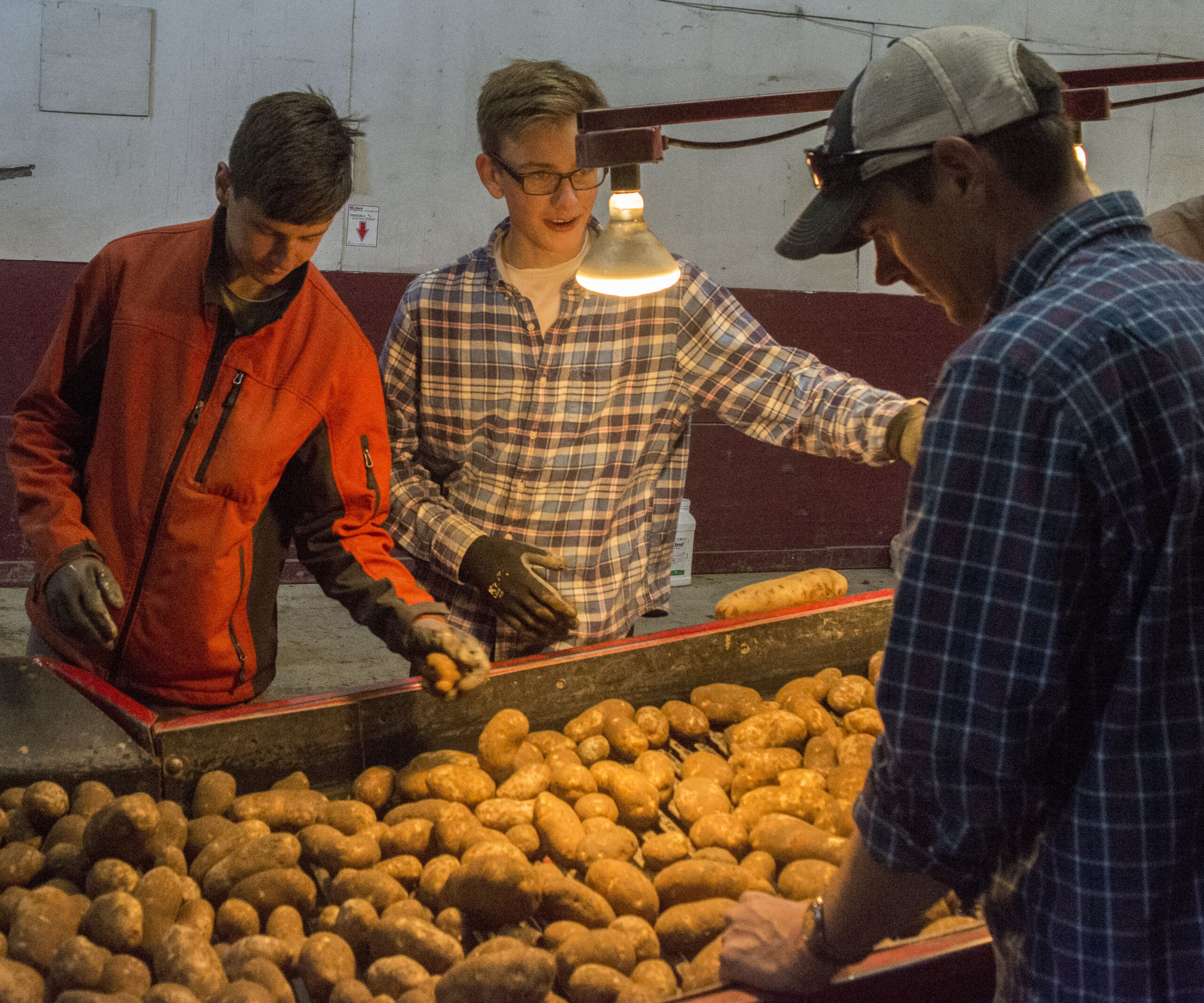
CARIBOU, Maine — The decision earlier this month by Presque Isle area school board members to end the potato harvest break in MSAD 1 in 2019, prompted RSU 39 officials from the Caribou area to also take another look at their options.
During a Feb. 28 board meeting, RSU 39 Superintendent Tim Doak said some schools in the region, such as Mars Hill and Easton, are “very concerned” about what the future will hold for harvest break.
Board Chairperson Tanya Sleeper asked if those communities would like to continue releasing students for harvest break.
“Yes,” Doak said, “they [Mars Hill and Easton] have a good number of kids working harvest.”
The numbers for RSU 39, however, have been declining in recent years, and Doak said only 19 percent of Caribou High School students worked on local farms last year, representing a six percent reduction from 2016’s total of 25 percent.
Sleeper asked if this percentage included students who were working other jobs, and Caribou High School Principal Travis Barnes clarified that the percentages specifically related to students working on a farm.
According to Barnes, 28.9 percent of students worked a non-harvest related job during the break in 2017, and 33.2 percent worked other jobs in 2016.
RSU 39 schedules two weeks off for harvest break, but the CHS Principal said on Friday that the school also offers five “flex” days that students can use to work in addition, provided their employer gives the school a handwritten note. An estimated 5.8 percent of students missed additional days beyond the regularly scheduled two weeks in 2016. That percentage increased to 7.7 in 2017.
Board member Betheny Anderson suggested making harvest a curriculum component for students who chose to work. Doak and other members of the board were not receptive to the idea, as students would lose two weeks worth of classes.
“I will do whatever the board wishes,” Doak said, “but I’m not really a fan of that idea. If we continue to have school through harvest and a student works two weeks, their math and science classes won’t stop.”
Anderson said that the “real-life dimension” of harvest work could potentially go toward a credit for participating students.
“There is no harvest activity that will help those students with anatomy,” said board member Ron WIlley, who later suggested establishing a “minimum participation rate” of around 15 percent before considering dropping the harvest break. If the percentage of student participation in farm work dips below that, he said it could trigger a one-year period where officials could then consider cancelling harvest break.
“And at that point,” Doak added, “we could talk to farmers about the situation.”
Willey agreed, and said using a percentage will “take the personal aspect” out of cancelling harvest.
Doak said Willey was “absolutely right” in his suggestion, and that if Barnes completes a survey that shows less than 15 percent are participating, he would schedule a meeting with area farmers.
“We could invite them to the office, maybe have some coffee, and explain our trends,” he said. “We could show that we’re trending downward and they’re trending upward [in terms of agricultural tech innovations that require fewer workers], and then discuss if it makes sense to continue taking the break.”
According to Doak, RSU 39 has offered a two week harvest for roughly six years. Before that, schools within the district took a three week break.
Board member Clifford Rhome said that while he is not a farmer, he speaks to a great deal of them, and that the farmers who need the extra help often need it for longer than two weeks.
“The problem is when you reduce the amount of days these kids get off,” he said. “It’s a self-fulfilling prophecy that we will cancel it, because farmers end up needing kids for three, or three and a half weeks, and we end up cancelling break altogether because of that.”
Rhome added that many farmers will not hire students for safety and insurance reasons.
Sleeper said some farmers require student employees to specifically pass a training course before working, and said she suspects many students who work harvest break are doing so because they would like to earn money at a job, regardless of if they are working for a farmer. She added that, if harvest break were cancelled and the extra two weeks were added to summer break, the “income potential would essentially be the same.”
“Bigger farmers sometimes don’t need extra help,” Doak said, “but the smaller farmers do. I think we’re smart to set a number and then initiate some conversation. Fifteen is a reasonable number.”
The board did not take any formal action regarding harvest break during the meeting, instead deciding to take a close look at participation trends in the upcoming season.




